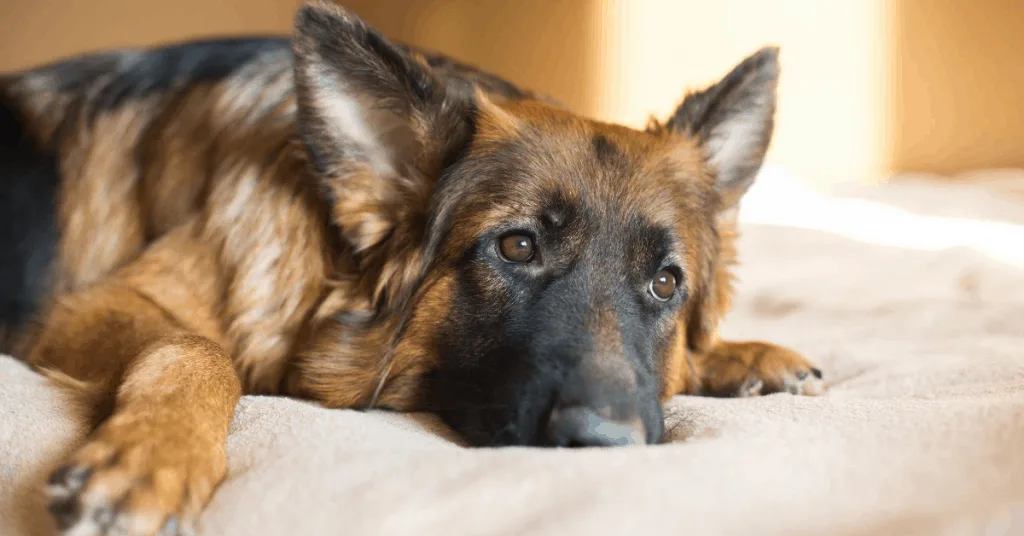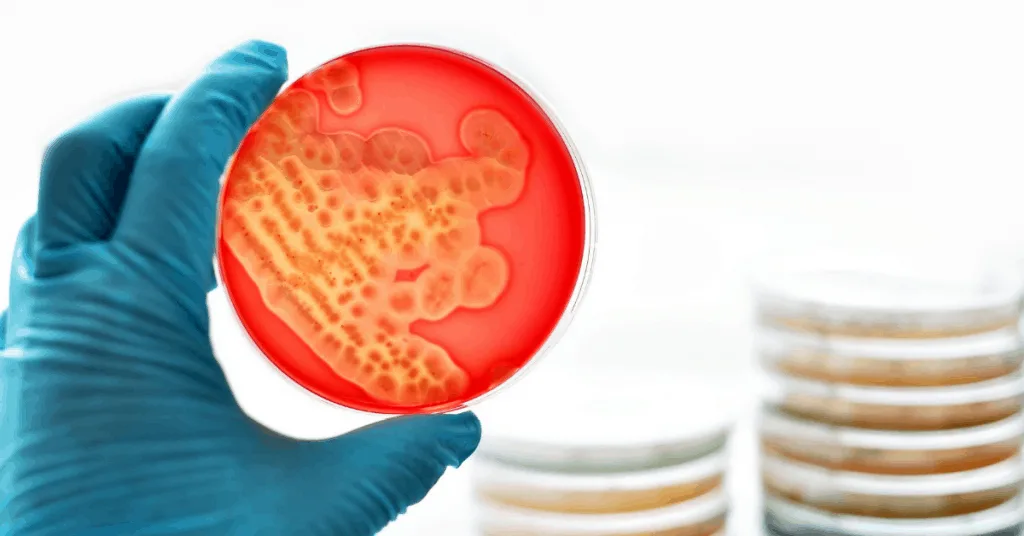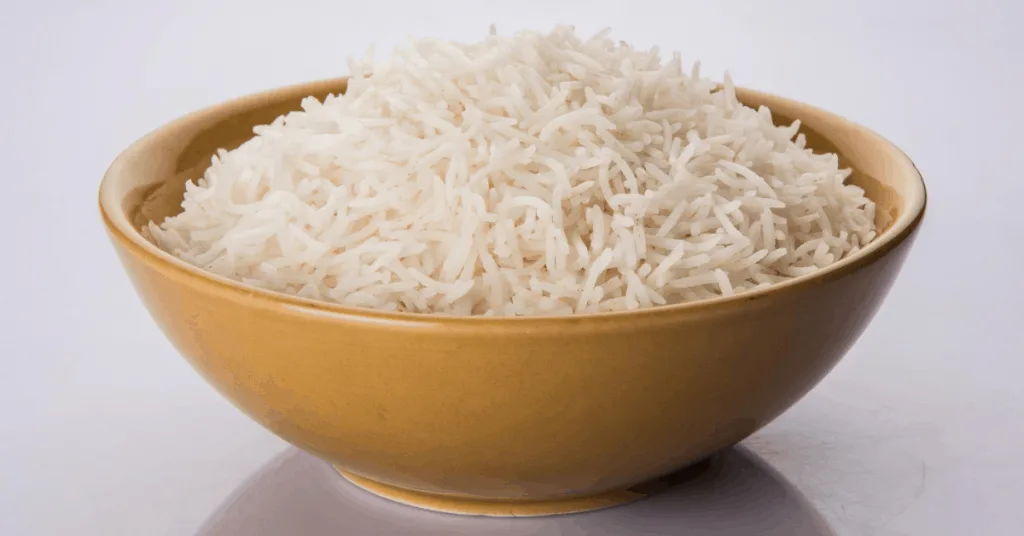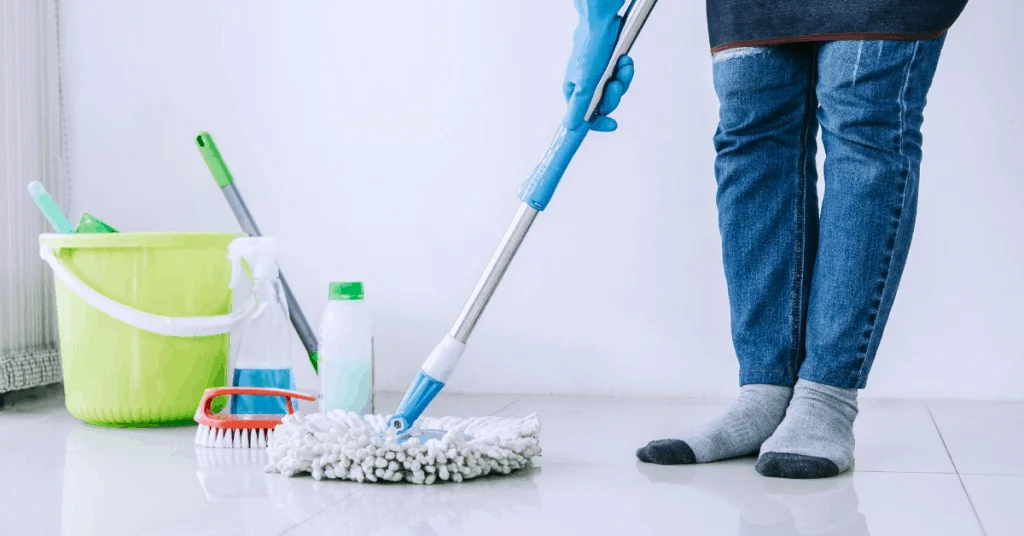
One frequent question that might be bothering you regarding your German Shepherd is how to handle diarrhea.
Diarrhea is a very common digestive issue for German Shepherds, and it can be a recurring problem. Most often diarrhea can be resolved through the feeding of a bland diet, such as boiled chicken and rice. More severe cases, such as acute diarrhea, will sometimes require veterinary intervention.
Click Here to Jump to a Section
What Is Diarrhea?
Diarrhea refers to a condition where a dog passes soft or watery stool during bowel movement.
Doggy diarrhea is not a disease itself. Rather, it is a symptom of an underlying issue.
The stool will usually occur in large amounts and in greater frequency than normal.
Physiologically speaking, diarrhea occurs due to fecal matter passing too quickly through the intestine while the absorption speed of electrolytes, nutrients, and water is decreased.
Your GSD’s diarrhea can be either mild or severe, depending on its cause, and at-home treatment is usually effective except in severe cases.
Symptoms of Diarrhea in a German Shepherd
Diarrhea can appear on its own, but it can also have other accompanying symptoms.
The most common symptoms are bloody stool (red or black), a low-grade fever, lethargy, flatulence, loss of appetite, and vomiting (as in gastroenteritis).
In cases wherein these symptoms also appear alongside diarrhea, it is best to bring your dog to the vet immediately.
What Causes Diarrhea in German Shepherds?

Throughout the lifetime of your German Shepherd, she will most probably experience diarrhea at least a few times. The most common causes of diarrhea in GSDs are the following:
- Bacterial infections
- Viral infections, such as one that is caused by parvovirus or canine distemper virus, especially in young, unvaccinated dogs
- Stress brought about by a change in environment or traveling
- Abrupt change in diet or treats
- Poor diet
- Food allergies or sensitivities, such as dairy products
- Intestinal parasites (which can come from raw meat)
- Ingesting poisonous substances, spoiled food, garbage, or foreign objects
- Antibiotic medication
- In rare cases, tumor(s) in the digestive tract (cancer)
Types of Diarrhea in German Shepherds
Diarrhea is a general term, but there are several different types of it. Here we break it down for you so that you can more accurately assess exactly what may be going on with your GSD’s digestive system.
Acute and Chronic Diarrhea
Depending on the underlying cause, diarrhea in your GSD can be acute (short-lived) or chronic (happening intermittently over course of weeks or months).
Sudden acute diarrhea can appear if your GSD ingests something that does not get along well with her intestines.
GSDs have a higher prey drive than most breeds, making them susceptible to chasing rodents and squirrels when left to their own devices.
If your dog ingests the meat of these animals, the bacteria in the meat can upset her stomach.
On the other hand, chronic diarrhea can appear out of seemingly nowhere, as in the case of inflammatory bowel disease (IBD), or the inflammation of a dog’s gastrointestinal tract.
German Shepherds and larger breeds in general are more predisposed to this chronic disease than smaller dogs, especially during middle age.
Oftentimes, veterinarians prescribe medication to manage the symptoms, as this is an incurable condition.
If you suspect that your GSD has IBD, please have her checked by your veterinarian.
Small and Large Intestinal Diarrheas
Diarrhea can also be classified according to its source location, whether it’s coming from your GSD’s small or large intestines.
Small intestinal diarrhea is usually caused by bacterial and viral infections, parasites, food sensitivities, IBD, ingested garbage, poison, or foreign objects.
In this type of diarrhea, your GSD may pass large amounts of stool about three to five times per day, without straining.
If there’s blood in the stool, it may appear black. Your dog may also vomit, pass gas frequently, and lose weight.
On the other hand, large intestinal diarrhea (also known as colitis) is often caused by whipworms, colon ulcers, colon cancer, IBD, and stress.
Colitis is characterized by more frequent passing of stool (more than five times a day) in smaller amounts, and your GSD may strain in the process.
Blood in the stool may appear bright red, and mucus may also be present. Unlike small intestinal diarrhea, large intestinal diarrhea does not always cause vomiting or weight loss in dogs.
In some cases, your dog may exhibit a combination of these two types of diarrhea. For instance, the problem can start in the small intestine and then proceed to the large intestine.
How to Treat Your GSD’s Diarrhea at Home
If you notice the first signs of diarrhea in your German Shepherd, it is very important that you stop giving her food for 12 hours to prevent further upsetting her stomach.
However, always provide plenty of fresh water nearby to avoid dehydration.
After the 12-hour fast, feed your dog a bland diet. Opt for skinless, boneless boiled chicken and broth.
You can mix in a few small spoonfuls of mashed pumpkin, sweet potatoes, or potatoes, but make sure that they are unseasoned and unsalted.
Rice can be added, too, as long as your GSD is not sensitive to it.
These foods will help to firm up the stool.
Start with small meals every two hours, then gradually increase the amount of food and the time in between meals.
Be very cautious when transitioning your GSD to her previous diet. The transition should be spaced out and gradually done over a few days.
Start mixing your GSD’s regular food into the bland food diet and then gradually increase it to a 50-50 proportion.
If this successfully resolves the diarrhea, you can get her back to her regular food.
Here is a simple recipe that you can follow to get your German Shepherd back on track in as short of a time as possible:

Ingredients
- 1 cup plain skinless/boneless chicken
- 1 cup plain white rice
- 1 3/4 cup water
Instructions
- Bring the water to a boil in a large pot
- Chop the chicken up into small, bite-sized chunks or strips
- Add the rice and chopped chicken
- Simmer everything on a low boil until done
- Let it cool to room temperature and before feeding it to your GSD
Can I Give Diarrhea Medication to My German Shepherd?
You may be tempted to give your dog some medication to help ease her discomfort and cure her diarrhea. It is important, however, to understand the risks and to follow proper instructions before you do so.
Imodium
Imodium is a common over the counter medication that many people give to their dogs to treat diarrhea. Imodium, known generically as Loperamide, is effective in slowing down the movement of the intestines, allowing nutrients to be absorbed more slowly.
As previously mentioned, and this bears repeating, you must be very careful when administering Imodium to your GSD. Always consult with your veterinarian before giving your dog Imodium.
Imodium (Loperamide) is a synthetic opioid, and it is possible to overdose your dog if you are not careful.
Never give Imodium to puppies, pregnant and nursing GSDs, senior GSDs, and those with other medical illnesses such as liver disease, kidney disease, and hypothyroidism.
Some of the side effects of Imodium may include:
- Constipation
- Bloating
- Central nervous system depression
- Vomiting
- Weight loss
- Constipation
- Gas
- Lethargy
Will Probiotics Help With My German Shepherd’s Diarrhea?
According to Katherine Zeratsky, registered dietitian at the Mayo Clinic, probiotics are “foods or supplements that contain live microorganisms intended to maintain or improve the ‘good’ bacteria (normal microflora) in the body.”
These good bacteria can be found in yogurt and sauerkraut, for example. They also come in the form of pills and powders.
In humans, it has been shown that taking probiotics helps to prevent and treat diarrhea and improve gut health.
In canine nutrition, there is a growing body of research on the same positive effects of probiotics on a dog’s gut health.
Veterinarians generally consider it safe to give your dog probiotics. However, they still recommend giving your dog a probiotic that is made specifically for dogs, since humans and dogs have different physiological makeup.
Purina’s Fortiflora is the most popular probiotic brand for dogs experiencing digestive problems like diarrhea. It is frequently recommended by vets and is even safe for lactating females.
Fortiflora also contains different strains of probiotics that perform different functions. Bifidobacterium, for instance, is known to slow down diarrhea in dogs, while Lactobacillus contributes to overall optimal digestive health.
When administering probiotics to your GSD, always follow the instructions indicated on the label.
Although experiencing side effects of consuming probiotics is rare, it is best to consult your vet when in doubt. He or she will be able to recommend the best brand and dosage of probiotics for your individual German Shepherd.
When Should I Take My GSD to the Vet?
On the first sign of diarrhea, assess the situation. Determine if your dog has recently ingested garbage, spoiled food, or food that causes sensitivities or contains too much fat or sodium.
Diarrhea that is triggered by these causes often goes away within 24 hours.
If your GSD has only vomited once, passes only very little diarrhea, and then becomes playful and returns to normal bowel movement afterwards, is likely indicative that the diarrhea has resolved on its own.
Just be sure that you assess the areas that your GSD has visited prior to falling ill. Keep her away from those areas, as you don’t want a repeat of what just happened!
However, if any of the following situations ring true, please do not hesitate to bring her to the vet!
- The diarrhea is bloody
- The diarrhea is accompanied by other symptoms such as vomiting, depression, lethargy, weight loss, or fever
- Symptoms persist for more than a day, or worsen over time
- You feel something’s just not right (you know your GSD, use your intuition!)
- Your GSD has swallowed a foreign object (this is an emergency situation and you should bring your pet to the vet ASAP)
How Will the Vet Diagnose My German Shepherd’s Diarrhea?
When you take your dog to a veterinarian, the doctor will perform diagnostic tests such as fecal analysis, blood work, and X-rays that will help them make a correct diagnosis.
You will likely have to bring in a stool sample, so be prepared!
In some cases, the veterinarian may also recommend an abdominal ultrasound if they want to more deeply explore your GSD’s internal organs and get a better look at them.
Since diarrhea looks the same in every case irrespective of the underlying cause, veterinarians usually conduct extra diagnostic tests such as advanced fecal exams, parvovirus test, radiographs, and additional blood work.
These steps are taken in order to make sure that there are no stones are left unturned.
Useful Tips for Cleaning German Shepherd Diarrhea

While diarrhea can be unpleasant for your GSD, it can be just as stressful for you.
A dog with diarrhea may spray uncontrollably inside your house, so you need to be prepared for cleaning large amounts of very messy poop.
If you’re uncomfortable with the smell, wear a face mask. Be sure to wear gloves as well when cleaning.
If your dog is outside when going to the bathroom, the fastest way to clean the mess is to spray the poop with water from a hose. A pooper scooper will have little to no effect.
If your dog is inside the house when she is experiencing diarrhea, confine her to one area with a tile or an otherwise non-carpeted floor. This way, you will only have to clean that single space with a flat non-absorptive surface.
For watery stool, get a paper towel and use it to absorb the poop. Clean the remaining mess with disinfectant such as Pine-Sol (the lemon scent).
Don’t worry too much about the toxicity of a cleaner like Pine-Sol – veterinarian Tina Wismer mentions that residue from commercial cleaners is too minimal to be toxic for dogs.
Just make sure that you allow it to dry thoroughly – a second rinse with water won’t hurt either.
If you’re still in doubt, you can opt for a natural alternative, such as this floor cleaner from Better Life.
If your GSD has an accident on carpeted floor or on furniture, cleaning the mess is an entirely different story.
It is very important that you deep clean the affected area, as the list of bacterial infections that can be passed from your dog’s feces to you is a long one.
Some bacterial infections that your GSD can pass to you through poop are:
- Brucella
- Pasteurella
- Campylobacter
- Capnocytophaga
- Salmonella
- Leptospira
- Coxiella burnetii
- Bordetella bronchiseptica
- Yersinia enterocolitica
- Staphylococcus intermedius
- Methicillin resistance staphylococcus aureus
To minimize your chances of contracting any of these bacteria, it is important that you thoroughly clean any area that may have come into contact with your dog’s diarrhea with an enzymatic cleaner.
My go to cleaner for dog stains is Nature’s Miracle Advanced Stain and Odor Eliminator. Simply put, this cleaner is tried and tested, and is great for eliminating the smell and bacteria from dog diarrhea.
Tips to Prevent Future Diarrhea in Your German Shepherd
While your GSD will most likely experience diarrhea more than once, it is still important that you keep in mind the following steps to minimize the chances of it happening again:
- Avoid a sudden change in your dog’s diet. If you want to introduce new food to your GSD, do so gradually.
- Avoid giving dog food and treats that are high in fat and salt. A food like bacon can upset the stomach due to its high fat and sodium content.
- Give dairy in moderation. Your GSD can eat cheese or drink milk from time to time, but too much can also upset the stomach, especially in dogs that are lactose intolerant. Try giving your dog these healthier treats.
- Regularly dispose off garbage. If it’s not possible, at least make sure that your garbage bin is covered to prevent your GSD from accessing it.
- Never give your GSD expired or spoiled food. Use common sense – if it smells off, it likely is, regardless of the date.
- When feeding your GSD raw meat, make sure that the meat is fresh and wash it first before serving.
- Always make sure that your GSD’s vaccine shots are updated, since many diseases associated with diarrhea come from preventable viral infections.
- Consider including probiotics in your GSD’s diet for the reasons mentioned above.
- Limit your GSD’s exposure to stress. Making time for warm cuddles and hugs can help alleviate any negative effects of stress on your GSD (and yourself!)
Final Thoughts
Diarrhea is very common among German Shepherds. In most cases, it will resolve on its own and your GSD’s health will come back to normal without requiring a trip to the vet.
However, in some cases, it can be caused by serious conditions such as cancer, so please always take it seriously.
Remember that even a relatively mild illness that causes diarrhea can become serious if not treated early enough.
The rule of thumb is to bring your GSD to the vet if symptoms persist for more than 24 hours, or if loose stool appears in conjunction with other medical symptoms such as vomiting, depression, inactivity, decreased appetite, lethargy, or pain.
While the chances of your GSD experiencing diarrhea here and there is highly likely, taking precautions such as avoiding abrupt diet changes, feeding high-quality, and keeping her away from garbage can help minimize its recurrence in the future.
